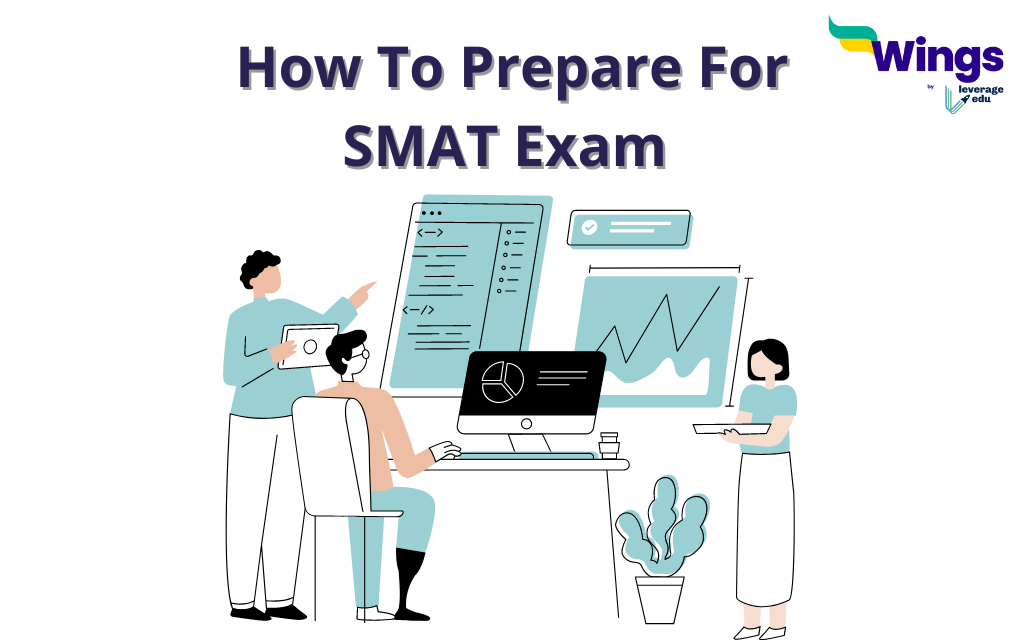Shiv Nadar University (SNU) is a reputable institution that offers a Master of Business Administration (MBA) program. To gain admission, candidates must take the Shiv Nadar University Management Aptitude Test (SMAT), a management aptitude test that evaluates quantitative aptitude, data interpretation, verbal and logical reasoning, and general awareness. The SMAT exam consists of multiple-choice questions and is computer-based. Candidates have two hours to complete the exam. To crack the test you need to know the right strategy and some tips on how to prepare for the SMAT exam 2023. Read on to learn the best preparation tips for SMAT 2023.
Contents
Exam Pattern of SMAT
Following is the exam pattern of the Shiv Nadar Management Aptitude Test (SMAT)-
| Subjects | Marks Distribution |
| Quantitative Aptitude | 40 |
| Logical Reasoning | 40 |
| Verbal and Reading Ability | 40 |
Also Read: SMAT 2023
Syllabus of SMAT
| Subjects | Syllabus |
| Quantitative Aptitude | Arithmetic, Algebra, Geometry, Trigonometry, Probability, Integration and Differentiation, Permutation and Combination etc. |
| Logical Reasoning | Coding-Decoding, Blood Relations, Direction Sense, Series, Analogies, Syllogisms etc. |
| Verbal and Reading Ability | Reading Comprehension, Sentence Correction, Para Jumbles, Vocabulary, Grammar etc. |
How to Prepare for SMAT 2023?
- Understand the exam pattern and syllabus: Before beginning your preparation, make sure you have a clear understanding of the SMAT exam pattern and syllabus. The exam consists of four sections: General English, Quantitative Ability and Data Interpretation, Analytical and Logical Reasoning, and Current Affairs. Knowing what to expect can help you structure your preparation more effectively.
- Create a study plan: Once you understand the exam pattern and syllabus, create a study plan that allows you to cover all the topics in a structured manner. Allocate sufficient time for each section based on your strengths and weaknesses. This can help you ensure that you cover all the topics in time for the exam.
- Practice regularly: Regular practice is crucial when preparing for the SMAT exam. Solving mock tests and previous years’ question papers can give you an idea of the types of questions that may appear on the exam. Regular practice can also help you manage your time effectively during the exam.
- Strengthen your basics: Brushing up on the basics is essential for all the sections of the SMAT exam. For the General English section, focus on improving your vocabulary and grammar skills. For the Quantitative Ability and Data Interpretation section, learn mathematical formulas and concepts thoroughly. For the Analytical and Logical Reasoning section, practice solving problems regularly. Additionally, stay up-to-date with current affairs to perform well in the Current Affairs section.
- Take breaks and stay positive: Taking regular breaks during your preparation can help you avoid burnout and stay focused. Engage in activities that help you relax and rejuvenate. Lastly, maintaining a positive attitude and being confident can help you stay motivated during the exam.
In conclusion, by following these tips, you can increase your chances of success on the SMAT exam. Understanding the exam pattern and syllabus, creating a structured study plan, regular practice, focusing on strengthening your basics, taking breaks, and staying positive are all important factors to consider when preparing for the exam.
Also Read: SMAT Syllabus 2023
Books Recommendation for SMAT
| Subject | Book Recommendation |
| Quantitative Aptitude | Quantitative Aptitude for Competitive Examinations by R S Aggarwal |
| Logical Reasoning | A Modern Approach to Logical Reasoning by R S Aggarwal |
| Verbal Comprehension | How to Prepare for Verbal Ability and Reading Comprehension for CAT by Arun Sharma and Meenakshi Upadhyay |
FAQs
The level of difficulty for SMAT is between easy to moderate.
Aspirants basis their capabilities and ability to grasp new concepts may schedule their own timetable for SMAT preparation.
No, SMAT exam has no negative marking.
For more such updates stay tuned to our Indian exams page. Don’t forget to follow us on Instagram, Facebook, Twitter, and Linkedin.


 One app for all your study abroad needs
One app for all your study abroad needs












 60,000+ students trusted us with their dreams. Take the first step today!
60,000+ students trusted us with their dreams. Take the first step today!